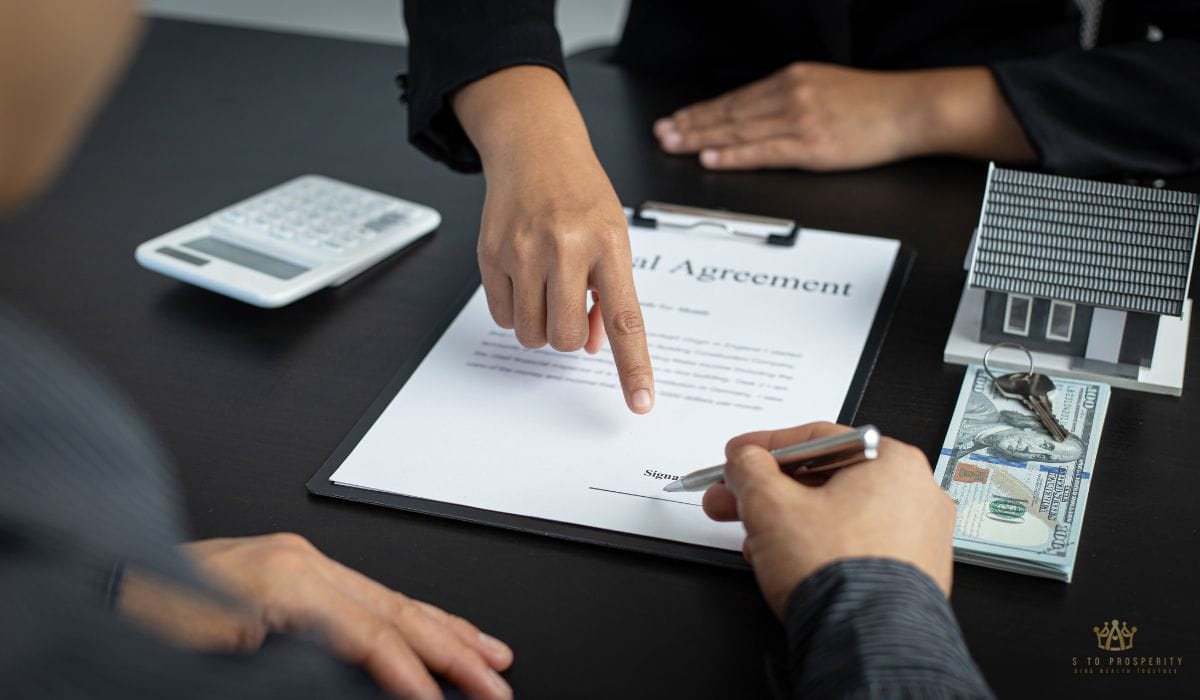
In 2025, the commercial real estate market is showing remarkable promise! A recent survey reveals 76% of industry professionals expect lower property values to fuel increased investment activity this year.
From our experience, those who succeed in this environment are the ones armed with a comprehensive commercial property due diligence checklist.
Taking shortcuts during the due diligence process can be costly. We’ve seen promising deals collapse because buyers skipped crucial steps.
This guide provides a detailed roadmap for your next commercial real estate transaction, helping you evaluate everything from financial records to physical conditions.
If you’ve already reviewed our commercial sales comparison evaluation article, you’ll find this checklist complements that knowledge perfectly.
After mastering these due diligence fundamentals, you might want to learn how to analyze commercial property operating statements in our upcoming guide. Both are essential components of understanding how to analyze a commercial property effectively.
Now, let’s get started with the essential elements every investor needs to verify before closing a deal!
Short Summary
- Commercial property due diligence involves legal, financial, and physical evaluations to ensure a sound investment.
- Key legal checks include reviewing zoning laws, property titles, and any pending litigation.
- Financial due diligence requires analyzing rent rolls, utility costs, and property performance history.
- Physical inspections assess structural integrity, compliance with building codes, and necessary repairs.
- Tenant-related factors like lease agreements and security deposits impact property value and risk.
- Environmental reports help identify hazards such as asbestos, lead-based paint, or soil contamination.
- Proper organization of due diligence documents speeds up decision-making and prevents costly mistakes.
Understanding Commercial Property Due Diligence
You won’t go very far in a real estate transaction without commercial property due diligence It’s the process of thoroughly investigating a property before finalizing a purchase.
From reviewing financial records to assessing structural integrity, due diligence helps investors confirm that a property meets their expectations and doesn’t come with costly surprises.
Skipping this step can lead to unexpected legal issues, undisclosed debts, or hidden repair costs that impact profitability.
Why A Due Diligence Checklist Is Essential
A commercial property due diligence checklist keeps the process organized and ensures no critical step is overlooked.
It’s easy to get eager and want to close a deal quickly, but rushing without due diligence? You’d likely end up regretting it because you’ve overlooked things like zoning restrictions or underestimated the expenses.
Having a checklist helps track essential evaluations, like lease reviews, title searches, and environmental assessments, so nothing falls through the cracks.
Phases Of The Due Diligence Period
The due diligence period happens in three key phases:
- Pre-Offer: Initial market research, financial modeling, and property inspections.
- Post-Contract: Deep-dive analysis, including lease audits, zoning verification, and physical inspections.
- Pre-Closing: Finalizing financing, insurance, and legal documentation before the sale is complete.
Timelines vary, but most commercial deals allow 30 to 90 days for due diligence.
How Commercial Due Diligence Differs From Residential
Unlike residential deals, commercial transactions involve complex financials, tenant leases, and environmental regulations. Residential buyers focus on property condition and mortgage approvals, while commercial investors analyze rental income, operating expenses, and market trends.
Minimizing Risk With Proper Due Diligence
A well-executed due diligence process helps buyers spot red flags before closing. It ensures real-time visibility into financial risks, legal liabilities, and maintenance needs, preventing costly mistakes.
The Role Of Legal Counsel
A commercial real estate attorney review contracts, negotiate terms, and verify zoning laws. Legal guidance is invaluable when navigating complex lease agreements and regulatory requirements.
Essential Commercial Property Due Diligence Checklist Items

A thorough commercial property due diligence checklist ensures no surprises pop up after closing. Skipping a step can lead to costly mistakes, a lesson we’ve learned the hard way, unfortunately. Here’s what every investor needs to review before making a deal official:
Legal Documents To Review
Before anything else, verify the property’s title and legal description to confirm ownership details. Loan documents, easements, and liens should also be checked to avoid hidden financial obligations.
Reviewing existing contracts, like maintenance agreements or management deals, helps uncover ongoing commitments tied to the property.
Financial Records That Matter
Numbers don’t lie, but they don’t always tell the full story at first glance. Reviewing the rent roll, utility bills, and aged receivables report helps verify the property’s income and expenses.
Don’t forget about security deposits. Knowing how much is held and under what terms can prevent future disputes.
Property Management & Compliance
A well-run property has organized service contracts, documented government inspections, and a clear record of material correspondence with local authorities. Notices from zoning boards or code enforcement agencies can signal potential regulatory headaches.
Pay special attention to letters about safety violations or required upgrades.
Tenant & Lease Considerations
Understanding current tenants and their lease agreements is key to evaluating cash flow. Some leases include special assessments or clauses that shift unexpected costs to the landlord.
Checking renewal terms and lease expiration dates can prevent sudden vacancies post-purchase.
Environmental & Structural Risks
Lead-based paint, asbestos, or underground storage tanks can trigger compliance issues. Ordering environmental reports early can prevent costly remediation later. A detailed property inspection should also assess necessary repairs and estimate costs for budgeting purposes.
Knowing potential fixes upfront prevents nasty surprises down the road.
Physical Inspection And Property Evaluation Process
A thorough property inspection is non-negotiable when evaluating a commercial asset. Keep in mind, deals can fall apart over missed structural issues, so having a solid inspection process in place is crucial. Here’s how to get it right:
Steps To A Detailed Physical Inspection
Start with a visual inspection, looking for cracks, water damage, and wear on major systems. Walk the roof, foundation, and mechanical rooms. These areas tend to hide the biggest issues.
A property inspector should also test HVAC, plumbing, and electrical to confirm everything is up to code.
The Importance Of Property Surveys And Site Plans
A property survey and site plan verify that structures match legal boundaries and zoning requirements. These documents also highlight easements, access points, and encroachments that could impact property use.
Skipping this step could mean costly surprises if a parking lot extends beyond legal limits.
Key Players In The Inspection Process
A property inspector checks for visible defects, while a civil engineer assesses structural integrity. Site consultants evaluate environmental risks, drainage issues, and soil conditions. Together, they provide a full picture of the property’s condition.
Best Practices For Different Property Types
Each commercial property type comes with unique challenges. Apartment buildings need a thorough look at common areas and unit interiors. Office spaces require an HVAC capacity check and network infrastructure review.
Industrial properties often have specialized equipment that needs evaluation.
ADA Compliance And Code Violations
Ignoring the Americans with Disabilities Act (ADA) can lead to hefty fines. Inspect for accessible entrances, parking spaces, and compliant restrooms. Also, check for fire code violations, outdated wiring, or missing safety exits.
Reviewing As-Built and Official Plans
Comparing as-built drawings with official plans ensures no unauthorized modifications exist. Discrepancies could mean unpermitted work, requiring fixes before closing. Always verify the approved blueprints match what’s standing today.
Navigating Legal And Financial Due Diligence
Skipping legal due diligence is like playing real estate roulette; one wrong move, and you could be stuck with a lawsuit or a zoning nightmare. Here’s how to keep your transaction smooth and stress-free:

Reviewing Zoning Laws And Legal Risks
Before signing anything, check the zoning laws to confirm the property fits your intended use. Just because a building looks perfect for a restaurant doesn’t mean it’s legally allowed.
Contact the local zoning office or review municipal codes to catch restrictions before they become roadblocks.
Checking Litigation History
A property’s litigation history can reveal past disputes over boundaries, contract breaches, or code violations. Look into both the property and the seller. If they’ve been sued multiple times, that’s a red flag. Court records and title reports will help uncover potential legal baggage.
Understanding Financing And Loan Options
Financing a commercial property isn’t a one-size-fits-all deal. Compare traditional bank loans, SBA loans, and private financing to find the best fit for your strategy. Review loan terms carefully.
Balloon payments and variable interest rates can sneak up on you if you’re not careful.
Verifying Seller’s Possession And Included Assets
Not everything in a commercial sale automatically transfers to the buyer. Confirm which fixtures, equipment, and personal property are included in the deal.
If the seller plans to remove major assets, like kitchen appliances in a restaurant sale, make sure that’s clearly stated in the contract.
Assessing Property Performance And Risks
A high occupancy rate doesn’t always mean a property is profitable. Review rent rolls, financial statements, and operating expenses to spot trends. If revenue fluctuates wildly, dig deeper. It could signal unreliable tenants or poor management.
Best Practices For Document Management
Staying organized during due diligence is a must. Store contracts, financials, and inspection reports in a secure cloud system for easy access. A well-structured file system saves time and helps avoid costly oversights.

Final Thoughts
Covering all the bases in commercial real estate due diligence takes time, but it’s worth the effort. Legal issues, financial risks, and zoning restrictions can derail a deal if they go unchecked.
Stay organized, verify every detail, and don’t rush the process. Need more expert insights? Keep exploring our homepage for practical tips on smart investing.
Frequently Asked Questions
What Are The Most Important Legal Documents To Review During Commercial Real Estate Due Diligence?
Review the property title, legal description, zoning permits, loan documents, and lease agreements. Also, check for any pending lawsuits or legal claims that could impact ownership or future use.
How Do I Assess A Commercial Property’s Financial Health?
Examine the rent roll, operating expenses, and aged receivables report to gauge income stability. Reviewing utility bills, tax records, and security deposits also helps ensure financial transparency.
Why Is A Physical Inspection Necessary For Commercial Real Estate?
It identifies structural issues, safety hazards, and code violations that may require costly repairs. A thorough inspection by professionals—including engineers and site consultants—helps avoid surprises after closing.
What Financing Options Are Available For Commercial Property Purchases?
Buyers can choose from traditional commercial loans, SBA loans, bridge loans, and private financing. The right option depends on factors like credit history, down payment, and investment strategy.






